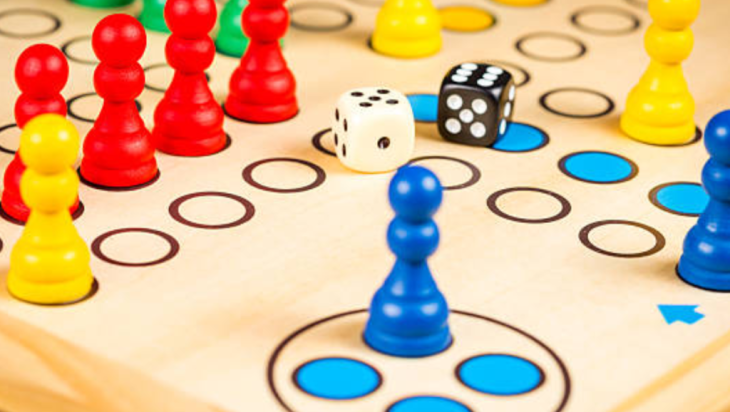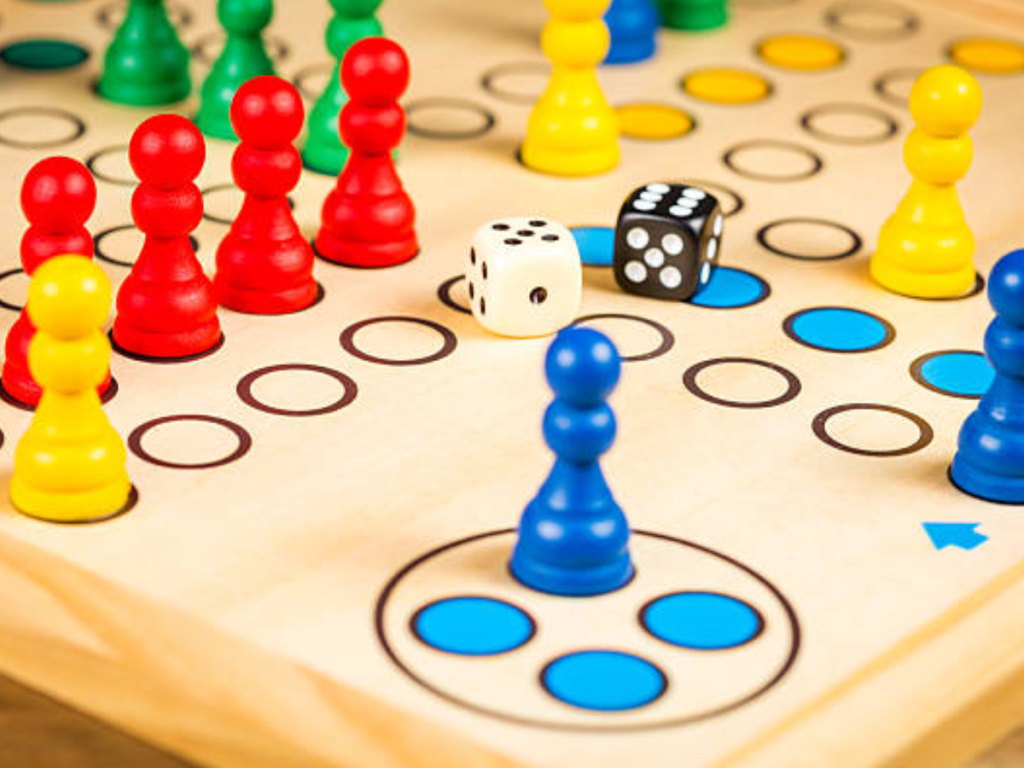Ludo’s Origins: The Royal Game That Took Over the World!

Prepend to the content

Ludo, a game that has graced countless family gatherings and friendly competitions, boasts a history as vibrant as its colorful board. Its journey from ancient Indian palaces to modern-day living rooms is a testament to its enduring appeal and adaptability. The story behind Ludo is far more fascinating than most realize, as it is a game that has transcended centuries, cultures, and continents.
Ancient Beginnings: The Birth of Pachisi
The roots of Ludo trace back to the 6th century CE India, where it was known as Pachisi. Pachisi, often referred to as the “Game of Kings,” is the ancestor of modern-day Ludo. This cross-and-circle game was not merely an entertainment tool, it was a reflection of strategy, chance, and social interaction. Evidence of Pachisi’s prominence is etched into the Ellora Caves in Maharashtra, showcasing its significance in ancient Indian culture. The game was more than just leisure, it was a tool of teaching strategy, decision-making, and even moral lessons.
Traditionally, Pachisi was played on a cloth board with cowrie shells as dice, and the game pieces were often represented by men or animals, which moved around the board according to the rolls of the shells. The game’s design had a deeper meaning, mirroring the philosophical and spiritual concepts of life, where players move between obstacles (represented by the snakes) and progress through opportunities (represented by ladders). Pachisi’s game board itself was rich with symbolism—its squares had meanings that linked to karma, fortune, and destiny.
Pachisi’s popularity wasn’t limited to commoners, it had a profound connection to the royal court and the Mughal Empire. The game was enjoyed by people of all social classes, but its association with royalty helped elevate it to the status of an elite pastime.
A Royal Affair: The Game of Emperors
The allure of Pachisi transcended social strata, capturing the attention of Indian royalty. Emperor Akbar, who reigned from 1556 to 1605, was particularly enamored with the game. Akbar’s love for Pachisi is well-documented, and he took his passion for the game to grandiose levels. The emperor commissioned a life-sized board in his royal court in Fatehpur Sikri, where human pieces moved at his command. These grand games involved servants and courtiers who were used as game pieces, adding an element of spectacle and fun to the royal court. This not only showcased the game’s importance but also reflected its role in courtly life and politics.
The life-sized board was used not just for casual gaming, but also as a medium for strategic training, where rulers and courtiers would make decisions on their pieces’ movement, mirroring decisions they made in real-life governance. It was an embodiment of how fun and learning intertwined in the courts of the Mughal Empire.
Colonial Influence: Pachisi Crosses the Seas
As the British Empire expanded its colonial influence in India, Pachisi crossed the seas to the West. In 1896, Alfred Collier, a British man, patented a modified version of the game in England and named it “Royal Ludo.” This adaptation simplified some of the original rules, making it more accessible to a broader audience while keeping the game’s central idea intact. This marked the beginning of Pachisi’s transformation into the version we know today.
The name “Ludo” itself is derived from the Latin word “I play”, a fitting reflection of the game’s joyful and social nature. Collier’s version retained the core mechanics of Pachisi—players moving pieces around the board based on dice rolls—but it was streamlined to be faster and simpler. This new version gained immediate popularity, especially among middle-class families in Europe, who were looking for simple indoor activities during the industrial age.
While Pachisi had been largely a game of nobility in India, “Royal Ludo” democratized the experience, making it more accessible to a general audience and transforming it into a board game staple for generations.
Global Domination: Ludo’s Worldwide Appeal
Following its reintroduction, Ludo rapidly gained popularity across the globe, becoming a household staple in many countries. As it spread, various cultures embraced the game, infusing it with local flavors and variations. The game adapted to different cultural norms, becoming the go-to board game in many parts of the world, from Europe to South America.
Its popularity was undeniable, and Ludo became a part of the cultural fabric of households. The classic cross-and-circle layout became a fixture in family game nights, with its simple mechanics allowing people of all ages to play together. The straightforward rules made it suitable for everyone, from young children to adults, making it a versatile game for social gatherings.
In the digital age, Ludo experienced a renaissance. Online platforms and mobile apps have brought this classic game to new generations of players, allowing them to connect and compete across vast distances. Apps like Ludo King became widely popular, especially in countries like India, where the game has enjoyed immense popularity. The ability to play with friends and strangers alike has kept Ludo relevant, and it now reaches audiences in ways that were unimaginable just a few decades ago.
Conclusion: A Timeless Classic
From its noble origins in ancient India to its current status as a global pastime, Ludo’s journey is a remarkable narrative of cultural exchange and adaptation. The game’s enduring popularity underscores the universal appeal of games that blend strategy, chance, and social interaction. Whether played in a royal court, a family living room, or online with strangers from across the globe, Ludo continues to captivate players of all generations.
As Ludo continues to evolve in the digital age, it remains a cherished link to our shared human history. From its spiritual beginnings in the Indian subcontinent to the modern-day mobile apps that allow us to play with anyone, anywhere, Ludo has firmly secured its place in the pantheon of timeless games.
The post Ludo’s Origins: The Royal Game That Took Over the World! appeared first on G2G News.



